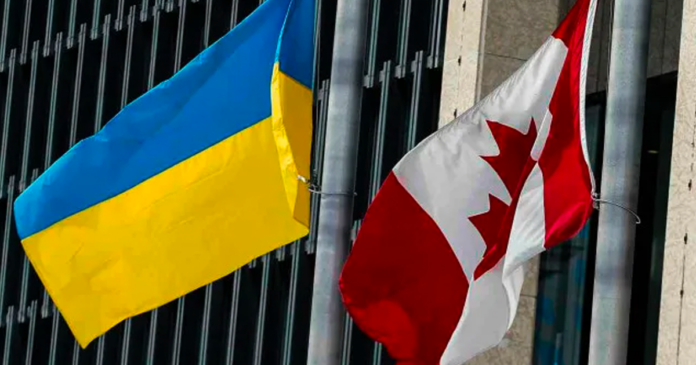A year ago, Russia waged a full-scale war against Ukraine. The USA, Great Britain, Canada, the EU and Japan, as well as most of the democratic world, rallied behind Ukraine and imposed thousands of sanctions against Russia, including restrictions on gas companies from the aggressor nation. Despite economic losses in certain EU states, the “sanction democratic front” remained united for several months.
Russia began actively seeking ways to bypass sanctions restrictions, even resorting to blackmailing by stopping gas supplies to Europe. By exploiting issues with the pipeline through Ukraine and the need to repair gas pumping units with foreign equipment, Russia made every effort to turn the energy carrier into a weapon against Ukraine, Europe, and the rest of the world.
Some countries, particularly those heavily reliant on Russia for gas supplies, began to waver in their compliance with the imposed restrictions. In response to Germany’s request (which depended heavily on Gazprom for almost one-fifth of its energy balance), the Canadian government decided to grant Siemens Canada a “time-limited” exemption from the sanctions to return a repaired turbine for the Nord Stream-1 gas pipeline. The turbine maintenance work was carried out in Montreal at Berlin’s request, although Opposition politicians suggested that high-level lobbying by representatives from Montreal influenced some decision-makers in Ottawa.
When Germany requested Canada to exclude the maintenance of Siemens turbines from the sanctions, they hoped to improve Germany’s relations with Russia and adequately prepare for the winter. However, goodwill did not benefit either Germany or Europe. Russians used the exemption from the sanctions policy to establish a precedent. Exemptions and waivers may become the new normal, posing a risk of undermining the basic mechanism and function of sanctions.
It was predictable that Kyiv would react strongly to the Canadian government’s decision. However, many European and other global capitals described this decision as the “greatest concession to Putin.” Civil society organizations began active campaigns against the aggressor’s concessions, including the Ukrainian World Congress (UWC), which immediately filed a lawsuit in a Canadian court over the government’s decision to transfer the Nord Stream turbine to Germany.
The case had been registered, and relevant procedural actions were ongoing. It is evident that the Liberals did not respond too actively to the Opposition’s constant demands to expedite the parliamentary investigation into this case.
Nonetheless, at the insistence of the Conservatives, the Committee thoroughly examined the issue off and on over a five-month period. It was expected that a decision would be reached in October, at the latest. However, regulatory procedures and the non-appearance of one witness delayed the issue’s consideration. The deliberate holdback was undoubtedly influenced by the explosions of pipelines, which stopped Nord Stream-1 from operating for years or perhaps forever.
But this did not absolve the Canadian cabinet of the headaches caused by an ill-conceived decision in the summer.
The Minister of Foreign Affairs of Canada and the Minister of Natural Resources released a rather sly statement on December 15, 2022, justifying once again the arguments that prompted them to adopt such a permissive stance on July 9. They noted that everything was now disavowed in agreement with partners, allies, and Ukraine. The statement could be interpreted as a diplomatic way of shutting down any discussions of this topic within Canadian political discourse.
This diplomatic move is a form of acknowledgment of the inappropriateness of discussing this topic. Moreover, the turbines are no longer necessary for the dysfunctional Nord Stream. However, the opposition is unhappy with these cunning measures to prevent parliamentary investigations of the decision-makers concerned.
Genuis, G. [@GarnettGenuis]. (2022, December 15). Conservatives have called for this permit to be revoked since the beginning. Liberals filibustered my motion to revoke the permit and delayed hearings. Months later, while pulling the permit, they still try to justify this obviously terrible decision. #cdnpoli #StandWithUkraine [Image attached] [Tweet]. Twitter.
It is important to discuss the recent situation involving Canada’s decision to grant a sanctions exemption to Siemens Canada, which has been widely criticized as a concession to Putin’s Russia. This serves as a warning to politicians in Western countries who may be tempted to make similar concessions in the face of the aggressive actions of Russia. The enemy is always seeking loopholes to undermine the strong progressive and democratic alliance that supports Ukraine, and the Canadian precedent is a confirmation of this fact.
Furthermore, there are ongoing negotiations to ease sanctions on Russia’s export of mineral fertilizers and oil and gas supplies, which only serves to underscore the multidimensional nature of this hybrid war. This makes it all the more important to emphasize the role of checks and balances and parliamentary oversight in developed democracies, as demonstrated by the actions of voters, their representatives, and Ukrainian associations in Canada.
Canada has always been a steadfast partner, friend, and ally to Ukraine, and this remains true today. No amount of manipulation or pressure from Russia or its allies will lead to a change in policy from Ottawa. Together, we will continue to defend democratic values and support Ukraine in its fight against aggression and evil on all fronts.
Daryna Ostrovska is a Policy and Communications Advisor to Conservative MP Garnett Genuis.









